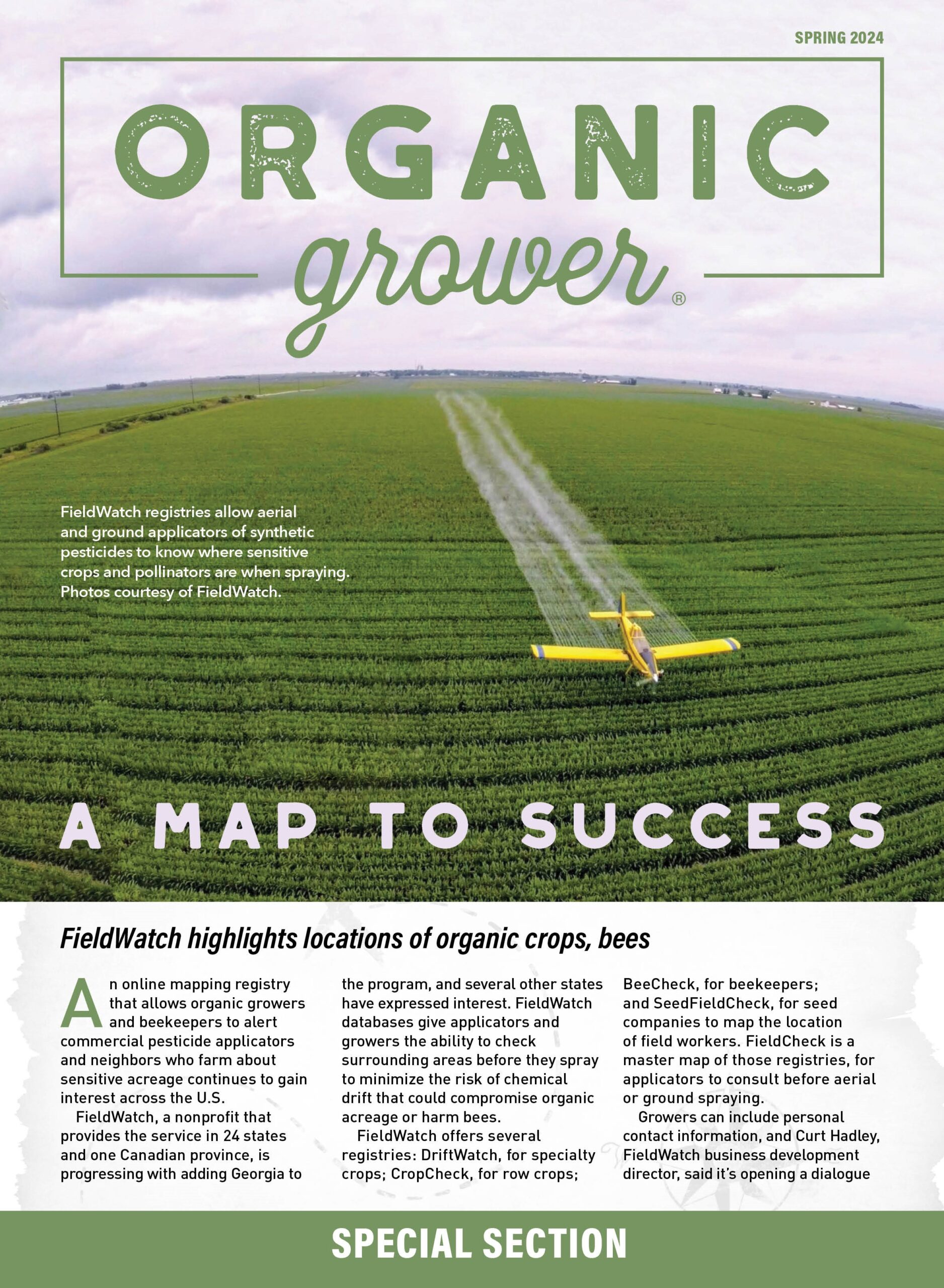Apr 11, 2023
Conservation Innovation Grants program funding 31 climate-smart projects
Thirty-one new climate-smart projects are being funded through a $40 million investment from the U.S. Department of Agriculture’s Conservation Innovation Grants program.
USDA is also investing $19 million in two projects focused on nutrient management, funded through the Regional Conservation Partnership Program, and two new partnerships to further nutrient management implementation.
 Agriculture Secretary Tom Vilsack announced the investments at Iowa State University on April 6.
Agriculture Secretary Tom Vilsack announced the investments at Iowa State University on April 6.
“Addressing climate change is a tremendous challenge, but agriculture plays an important role, and we’re grateful for our many partners who are helping us confront the challenge head on,” Vilsack said. “These new projects and agreements are working to mitigate climate change, conserve and protect our water, enhance soil health and create economic opportunities for producers. We’re empowering our partners to develop new tools, technologies and strategies to support next-generation conservation efforts on working lands and develop cost-effective solutions to resource challenges.”
Iowa-based partners are two of the 14 partners with funded Conservation Innovation Grants On-Farm Trials projects. This year, USDA’s Natural Resources Conservation Service is investing $25 million through On-Farm Trials, which support widespread adoption and evaluation of innovative conservation approaches in partnership with agricultural producers. Incentive payments are provided to producers to offset the risk of implementing innovative approaches.
The On-Farm Trials in Iowa are:
- Iowa State University of Science and Technology will demonstrate the advantages of a relay intercropping system to maintain or enhance productivity and profitability while improving soil health and increasing nutrient reductions. A diverse intercropping system will add cropping system resiliency and promote a more diversified and stable community of soil organisms, from microbes to earthworms, while suppressing pathogens and crop pests and benefiting nutrient cycling and soil structure.
- The Iowa Soybean Association is promoting the adoption of newly synthesized cropping systems that increase profitability, reduce nutrient losses and improve soil health. Project objectives include characterizing profitability and natural resource outcomes for improved cropping systems and developing new economic insights, natural resource conservation, and improved cropping system stability via crop modeling and statistical analysis.
NRCS is also investing $15 million in 17 projects through CIG Classic, which enables partners to develop new tools, technologies and strategies to support next-generation conservation efforts and to develop market-based solutions to resource challenges.
For fiscal year 2022, NRCS set aside targeted funds for CIG Classic and On-Farm proposals that benefit underserved producers, which includes producers who have previously lacked access or not participated in NRCS programs. This includes socially disadvantaged producers, military veterans, beginning farmers and limited-resource producers. Additionally, applicants competing for these set-aside funds were able to waive the nonfederal match requirements.
Additional funding will be available for CIG On-Farm Trials for fiscal year 2023. The IRA provided $19.5 billion to support climate-smart practices through NRCS conservation programs, enabling NRCS to invest $50 million per year from fiscal years 2023 to 2027 for CIG On-Farm Trials. As part of the next call for proposals, NRCS will prioritize applications that focus on diet and feed management to reduce enteric methane emissions from livestock.
More information on the fiscal year 2023 call for proposals will be available soon.
RCPP Nutrient Management Grants
NRCS awarded two grants through RCPP to help producers achieve more efficient nutrient management within targeted critical conservation areas.
The programs receiving the grants are:
- Family Farms LLC will improve soil health and reduce the amount of nutrients applied to and lost from cropland in the Mississippi River Basin. This will be done through nutrient management plans that incorporate the addition of biochar to help conserve nutrients.
- The Environmental Initiative Inc. will use “nutrientsheds” — interconnected networks of geographically close farms to move and balance nutrient needs — to mitigate excess nutrient run-off adversely affecting the watershed. Within each of the two proposed nutrientsheds, manure at participating farms will be collected and processed through centralized thermophilic anaerobic digesters.
Through RCPP Grants, the lead partner must work directly with agricultural producers to support the development of new conservation structures and approaches that would not otherwise be available under RCPP Classic.
The more than $19 million awarded through these grants builds on the $200 million in RCPP Alternative Funding Arrangement and RCPP Classic partnership projects awarded in fiscal year 2022.
The RCPP fiscal year 2023 funding opportunity will be announced in late spring.
Nutrient Management MOUs
Additionally, as part of its effort to increase use of nutrient management practices, NRCS has also recently signed two memorandums of understanding:
- American Society of Agronomy and its International Certified Crop Adviser Program establish a framework enabling ASA to recommend individuals for the NRCS Technical Service Provider program. The TSP program enables certified individuals outside of NRCS to provide, among other things, nutrient management plans to producers and landowners.
- Truterra (a Land O’ Lakes company) intends to explore opportunities to expand nutrient management adoption and increase technical capabilities of producers and landowners; assess the capabilities and tools of Truterra to deliver nutrient management technical assistance; streamline the technical assistance delivery system; and collaborate on assessment tools and opportunities to expedite producer participation in broader NRCS programs.
Additionally, NRCS is investing up to $70 million in cooperative agreements for two-year outreach projects that will increase participation by underserved producers and communities in conservation programs.






